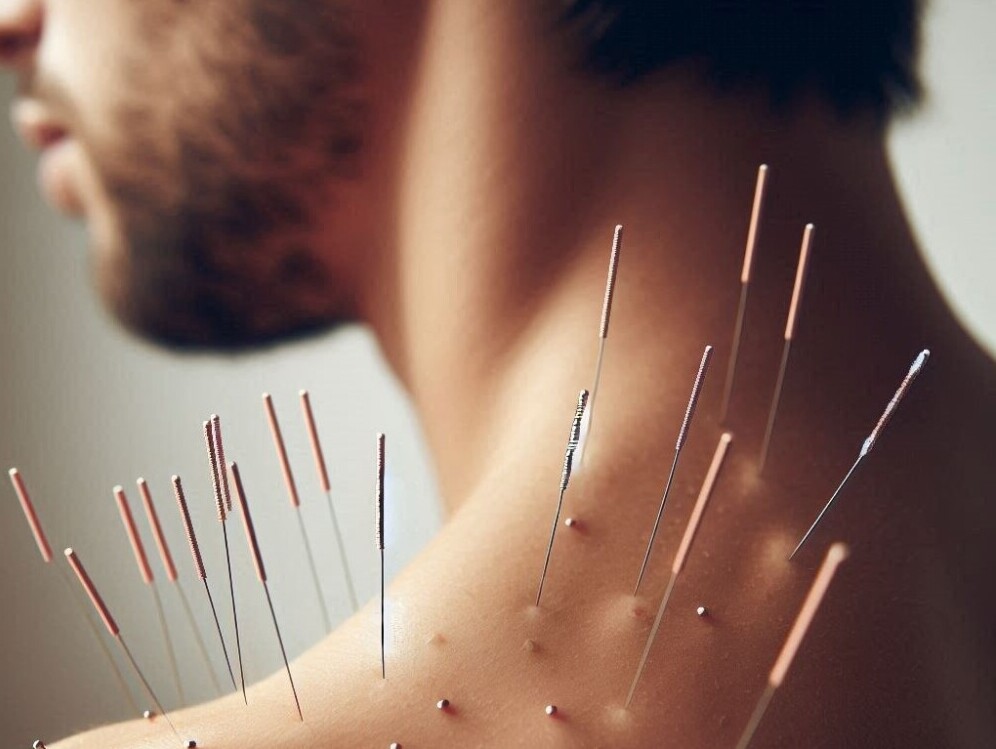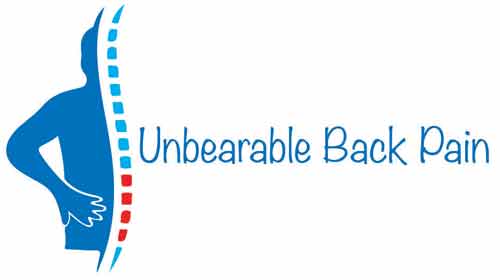Low back pain is a common ailment that affects millions of people globally. Most of us have experienced it at some point, whether from a minor strain or something more serious. The causes can range widely, from poor posture, heavy lifting, and sedentary lifestyles to medical conditions like herniated discs or arthritis. It’s not just an inconvenience; it can hinder daily activities and reduce quality of life significantly.
With low back pain being such a prevalent issue, it’s no wonder it has a major impact on our lives. Once simple tasks, like bending over to tie shoes, lifting a grocery bag, or putting on socks, can become difficult and painful. This kind of pain doesn’t just affect physical health – it can take a toll mentally and emotionally, leading to stress, anxiety, and even depression.
Traditional treatments for low back pain typically include over-the-counter painkillers, physical therapy, and, in some cases, surgery. While these can be effective, they don’t work for everyone and sometimes come with side effects or long recovery periods. People often search for alternative solutions that might offer relief without these downsides. Acupuncture is one such alternative that has gained popularity and warrants a closer look.

What is Acupuncture?
Acupuncture has its roots in ancient Chinese medicine and has been practiced for thousands of years. The underlying principle is the belief that life energy, or ‘qi,’ flows through the body in specific pathways called meridians. When this flow is disrupted or blocked, it can result in pain or illness. Acupuncturists aim to restore the natural flow of qi by inserting thin needles at strategic points along these meridians.
While the concept of qi might sound foreign to some, think of it as a way to balance the body’s systems. Modern science has tried to explain acupuncture through various theories, such as stimulating nerves, muscles, and connective tissues. This stimulation could boost the body’s natural painkillers and improve blood flow, potentially aiding the healing process.
Acupuncture isn’t a one-size-fits-all practice. There are various styles and techniques, each with its unique approach. Traditional Chinese Acupuncture (TCA) is perhaps the most widely known, but there are other forms like Japanese acupuncture, which uses thinner needles and gentler techniques, and Korean hand acupuncture, which focuses solely on the hands.
Understanding these differences can help you choose the approach that feels right for you. It’s important to have a conversation with a qualified acupuncturist who can guide you based on your specific needs and conditions.
Acupuncture for Low Back Pain: The Evidence
Research into acupuncture for low back pain has been steadily growing. Several scientific studies and clinical trials have investigated its effectiveness. The results are promising but not without some debate. Generally, reviews of these studies suggest that acupuncture can provide relief for those suffering from chronic low back pain, sometimes even outperforming conventional treatments like medication and physical therapy.
A significant body of research indicates that acupuncture may reduce pain levels and improve function in individuals with low back pain. For many, the reduction in pain can lead to improved mobility and a better quality of life. One prominent study found that patients who received acupuncture reported greater improvements in pain and function compared to those who received standard care involving physical therapy and painkillers.
These benefits are believed to arise from various factors. Acupuncture is thought to stimulate the central nervous system, increasing the release of natural pain-relieving chemicals like endorphins and serotonin. Additionally, the insertion of needles may lead to better blood flow and reduced inflammation in the affected area.
However, the effectiveness of acupuncture can vary depending on various conditions. For instance, some studies show more significant benefits for those with chronic low back pain versus those with acute or short-term pain. And while many people experience immediate relief, others might need multiple sessions before noticing substantial benefits. This variability highlights the importance of a personalized treatment plan, tailored to an individual’s specific condition and response to acupuncture.
While research continues to evolve, consulting with a healthcare provider can help you determine if acupuncture is a suitable option for your low back pain. Always talk to a qualified acupuncturist about your symptoms and medical history to create an effective treatment plan.

Getting Started with Acupuncture
Finding the right acupuncturist is crucial for a positive experience. Look for a licensed professional with solid credentials and good reviews. Personal recommendations from friends or family can also be helpful. You want someone who understands the practice and makes you feel comfortable and heard.
During your first session, you can expect a thorough consultation. The acupuncturist will ask about your medical history, lifestyle, and the specifics of your back pain. This detailed discussion helps tailor the treatment to your unique needs. The actual acupuncture process involves the insertion of very thin needles into specific points on the body. This might sound daunting, but most people report feeling minimal discomfort.
Sessions can vary in length, typically ranging from 30 to 60 minutes. Some people feel relief after just one session, while others might need several treatments to experience noticeable benefits. It’s important to be patient and give your body time to respond to the therapy.
Maximizing the benefits of acupuncture doesn’t end when you leave the clinic. Staying hydrated, getting adequate rest, and avoiding heavy physical activity right after a session can enhance the treatment’s effects. Additionally, combining acupuncture with other treatments, like physical therapy or gentle exercise, can offer more comprehensive relief. Your acupuncturist might provide personalized advice on lifestyle adjustments that could support your healing.
Personal Anecdote
Some years ago I was in a mess! After years of severe back pain, I finally succumbed to having an operation. To cut a long story short, my prolonged treatment led to three operations which although successful, still left me in a lot of pain. In addition, I had trouble sitting comfortably and had reached the point where I cried out loud just trying to lift my body out of a chair.
My family doctor phoned me one day when I was at the point of giving up. Anyone who has experienced the pain I am describing will know what I mean by that statement. He could hear the distress I was going through just by listening to me trying to hold a conversation. At that point, he asked if I had ever considered acupuncture. I said, “Mike, I’ve just come home after weeks of treatment in a London hospital. The doctors and nurses were brilliant and did everything they could to help me. Surely they would have suggested alternative treatment if they were going to help me.” Mike said I had nothing to lose, and that he would contact a local hospital where he knew one of the acupuncturists.
Here in the UK, the National Health Service (NHS) does a wonderful job, but the wheels turn very slowly. I fully expected to wait several weeks if not months to hear from them. Imagine my surprise when I was contacted by them within an hour of my doctor speaking to me! I guess it’s who you know sometimes…
The acupuncturist was very blunt with me. He said that he offered treatment in batches of six sessions. If at the end of six treatments, I hadn’t improved, he would offer a further six sessions. If at the end of those twelve treatments, nothing had worked, he would stop working with me. In his experience, twelve sessions were enough to know if any progress had been made or would be likely to improve.
I started with him the following day, and I put my heart and soul into following his advice after each treatment. I have always been a positive thinker, and that combined with his treatment meant that I walked out of his clinic after the fifth session!
That was thirty-two years ago, and although I still have to be careful, that man changed my life. So please bear this story in mind if you are at all wary of scare stories that you will hear from well-meaning friends and family. I can only speak as I find, and I wouldn’t hesitate to seek out the services of a fully qualified acupuncturist in the future.
Here’s a little transparency: Our website contains affiliate links. This means we may receive a small commission if you click and purchase. Don’t worry, there’s no extra cost to you. It’s a simple way you can support our mission to bring you quality back relief content.



Acupuncture sounds like an interesting option for managing low back pain! I’ve heard mixed things, but it’s great to know some people find real relief from it. I like how the article breaks down the benefits and potential drawbacks. It’s cool that acupuncture is seen as a more natural way to handle pain, especially when other treatments haven’t worked. I might give it a try after reading this! Thanks for sharing!
Thank you for your feedback! I’m glad you found the article on acupuncture for low back pain helpful and insightful. Acupuncture is indeed an intriguing and holistic approach that many people turn to, especially when they’re looking for alternatives to conventional treatments.
As you mentioned, the natural aspect of acupuncture can be appealing, and many have experienced relief from chronic pain through this method. However, it’s always good to keep in mind that results can vary from person to person. If you do decide to give it a try, consulting a licensed acupuncturist and discussing your condition with a healthcare provider beforehand can help ensure the treatment is safe and tailored to your needs.
Feel free to share your experience if you try it, and let me know if you have any more questions about acupuncture or other treatments for back pain!
Best regards,
Michael